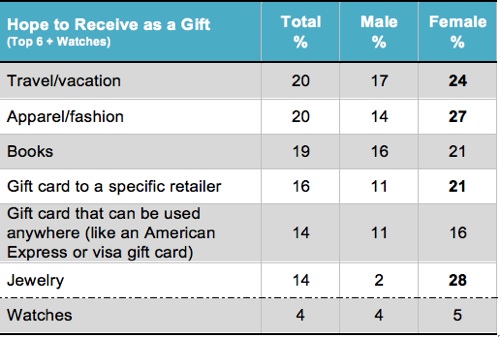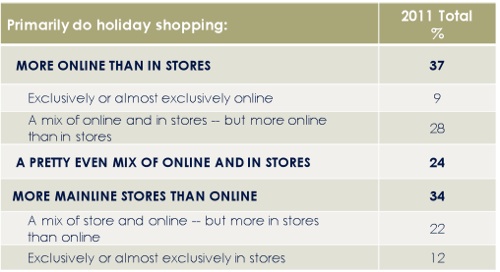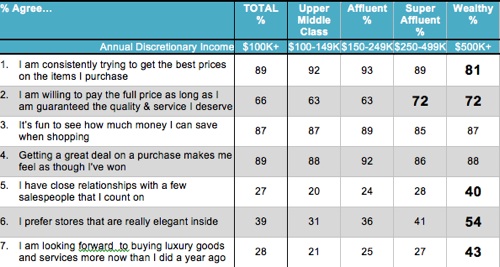Articles and News
SURVEY SHOWS WOMEN WANT JEWELRY AND AFFLUENT SHOPPERS WANT BARGAINS | November 09, 2011 (0 comments)

Merrick, NY—Women want jewelry. That’s not news to jewelers, of course, and now American Express confirms they’re right.
The Holiday Forecast Survey of Wealth and Affluence in America, presented by American Express Publishing and The Harrison Group, says jewelry is the number-one desired gift among women—28% of respondents hope to receive it this holiday season. Apparel was also a popular choice; 27% of women listed it as something they want to receive as a gift this year.
Jewelry is the second most likely gift to be given by men, with 27% of men indicating they’ll be giving it. Apparel/fashion was first—39% of men said they’d be giving it, despite the fact that they generally don’t like to receive it. They don’t necessarily want to receive jewelry, either—only 2% of the respondents to the Harrison/Amex study said they want it for a holiday gift. 4% said they would like to receive a watch. Interestingly, while watches tend to be considered a “male” gift, slightly more women than men (5% vs. 4%) said they’d like to receive a watch for a holiday gift.

Jewelry got the highest response percentage when asked what gifts women want for holiday 2011.
In terms of where they will shop, the affluent skewed higher online than other surveys have shown, though these findings were general among affluents and not limited to the jewelry/watch category. The Harrison/Amex study shows 37% of respondents plan to shop mostly online, while 34% plan to shop mostly in stores. 24% will do both, split fairly evenly.
These findings, incidentally, contrast sharply with a study done by ShopperTrak, which found that 94% of shopping is still done in stores, though that study didn’t break out results by income levels. It did, however, point out that window-shopping and research is done online and that the customer is ready to buy when they hit the store.

The Amex/Harrison findings show online shopping is important to affluent shoppers.
While most consumer surveys, including Harrison/Amex, show the affluent are back to spending, they’re still into bargains. In the Harrison/Amex survey, far more respondents indicated they’re highly price-sensitive than those who valued attributes such as service and relationships. 89% of total respondents said they consistently try to find the best price possible for what they buy, but only 27% said they have close relationships with salespeople they count on. 89% also said getting a great deal on a purchase makes them feel like they’ve “won,” and 87% said it’s fun to see how much they can save—but only 66% said they’re willing to pay full price if the service and quality merit it.
Breaking these findings out by income, the propensity to bargain-shop is higher among the lower levels of affluents, decreasing as income rises. 92% of upper middle class shoppers (income between $100K and $149K) and 93% of shoppers with income between $150K and $249K are likely to seek out the best price possible for an item, while 81% of those with incomes over $500K are likely to do so. The appeal of service rises with income but still remains below the importance of price.

Affluent shoppers guard their wealth carefully and want to get the best price possible on anything they buy.
Finally, the propensity to buy “one for you, one for me” while gift shopping is highest among those the Harrison/Amex study labels as “pinnacle” affluents ($250K income or higher). 44% of those say they’ll buy themselves a gift as well as shopping for others on their list. 18% of them will be buying jewelry, too, while only 5% said they’d buy a watch.







